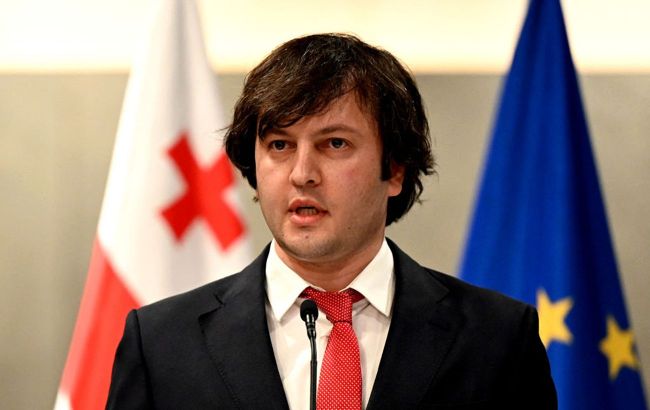Georgia aims to join EU along with Abkhazia and South Ossetia by 2030
 Irakli Kobakhidze, Prime Minister of Georgia (photo: Getty Images)
Irakli Kobakhidze, Prime Minister of Georgia (photo: Getty Images)
Georgia wants to become an EU member by 2030, along with South Ossetia and Abkhazia, which are currently under Russian occupation, states Irakli Kobakhidze, Prime Minister of Georgia.
The Georgian prime minister made this statement in his greetings on Georgia's Independence Day.
"Our Georgian dream is to live in a united and strong Georgia by 2030 together with our Abkhaz and Ossetian brothers and sisters. United and strong Georgia should become a fully-fledged member of the European family in 2030!" Kobakhidze wrote.
Russia's occupation of South Ossetia and Abkhazia began during the Russian-Georgian war in August 2008. After a brief but intense conflict, Russia recognized the "independence" of both Georgian regions, established military bases and exerted significant influence there.
Georgia and most of the international community, including Ukraine, consider these territories to be occupied by Russia.
Georgia's European future is under threat
Today, however, Georgia's European future is in jeopardy due to the controversial law on foreign agents that was approved by the Georgian parliament in May. The law is similar to Russian legislation and could restrict the rights of non-governmental organizations and independent media that receive foreign funding.
The EU and NATO have warned Georgia that the adoption of this law could become an obstacle to Georgia's European and Euro-Atlantic integration. Moreover, the EU is now proposing to cancel the visa-free regime for Georgia, and the United States plans to impose sanctions on the authors of the scandalous law.
Georgian President Salome Zurabishvili does not support the law on foreign agents and has vetoed it. However, the Georgian parliament plans to override the presidential veto in June and finally approve the document.
Read more about the scandalous law and the situation in Georgia in RBC-Ukraine's article.

